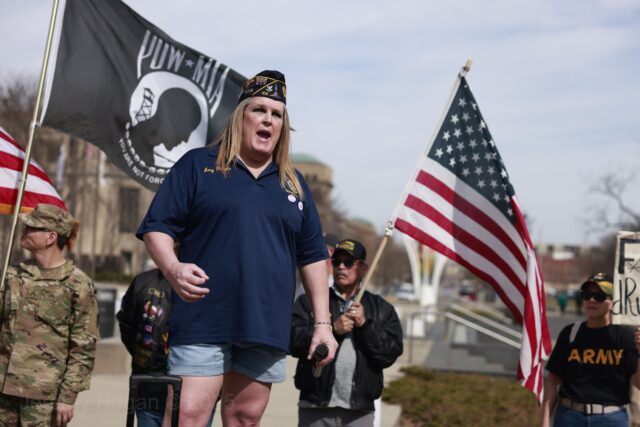Supreme Court Allows Trump Administration to Enforce Military Transgender Ban
The United States Supreme Court has granted President Donald Trump’s request to proceed with a ban on transgender individuals serving in the military while ongoing legal battles challenge the policy. This decision comes after Trump signed two executive orders shortly after his inauguration in January, empowering the Pentagon to enforce a policy that had previously been blocked by a lower federal court.
In March, a federal court ruled against the ban, stating that the government had not adequately demonstrated that the presence of transgender troops would undermine military effectiveness. However, in a bid to uphold the ban, the Trump administration filed an emergency application asking the Supreme Court to defer to military judgment regarding national defense matters.
Court’s Liberal Justices Dissent
The Supreme Court’s decision, issued through an unsigned order on Tuesday, attracted dissent from the Court’s three liberal justices. Under Trump’s executive orders, identifying as transgender was argued to conflict with the essential traits of a soldier, suggesting that such identities could hinder military readiness and discipline.
In February, the Department of Defense began initiating the discharge of transgender service members, an action that was swiftly contested by seven individuals, including Commander Emily Schilling, a Navy fighter pilot, and another transgender person aspiring to enlist. The plaintiffs’ claims articulated that the ban undermines military preparedness, jeopardizes safety, and violates constitutional rights.
Reactions from Advocacy Groups
In a joint statement, Lambda Legal and the Human Rights Campaign Foundation—representatives for the plaintiffs—condemned the Supreme Court’s ruling. They described the decision as a profound setback for transgender service members, asserting that it endorses a policy rooted in discrimination rather than military necessity. “Today’s ruling is a devastating blow to transgender servicemembers who have demonstrated their capabilities and commitment to our nation’s defense,” they stated.
Earlier in March, a federal judge in Washington state mandated a nationwide freeze on the ban, ruling that the government failed to substantiate arguments linking the policy with improved military cohesion or discipline. The Ninth Circuit Court of Appeals sustained this ruling, yet the Supreme Court’s latest order has lifted the injunction, allowing the administration to enforce the ban while the lawsuit continues through lower courts.
Political Response
White House spokesperson Karoline Leavitt characterized the Supreme Court’s ruling as a significant triumph for the administration. Trump has taken multiple measures in his second term which have notably affected transgender individuals, including an executive order that recognized only two genders—male and female—stripping recognition of other identities.
Implications for Transgender Individuals
The changes enacted by the Trump administration have significant implications for many transgender Americans, particularly for those seeking formal documentation. Notably, the State Department announced in February that applicants could no longer select “X” as a gender designation on US passports, mandating a choice between “male” or “female” based on assigned sex at birth. This passport policy is currently under scrutiny in a lawsuit led by the American Civil Liberties Union on behalf of various transgender and nonbinary plaintiffs. A federal judge has issued an injunction against this passport policy while the case is in progress.
Moreover, the administration has promoted guidelines to limit certain healthcare services available to transgender minors and attempted to restrict transgender women’s participation in women’s sports teams.
| Policy | Status | Legal Action |
|---|---|---|
| Transgender Military Ban | Enforced with Supreme Court ruling | Ongoing lawsuit in lower courts |
| Passport Gender Designation | Policy in effect | Injunction issued; lawsuit pending |
| Healthcare for Minors | Proposed restrictions | In discussion |
The legal and social ramifications of these policies continue to unfold, as advocates persist in their pursuit of equality and justice for transgender individuals across the United States.














